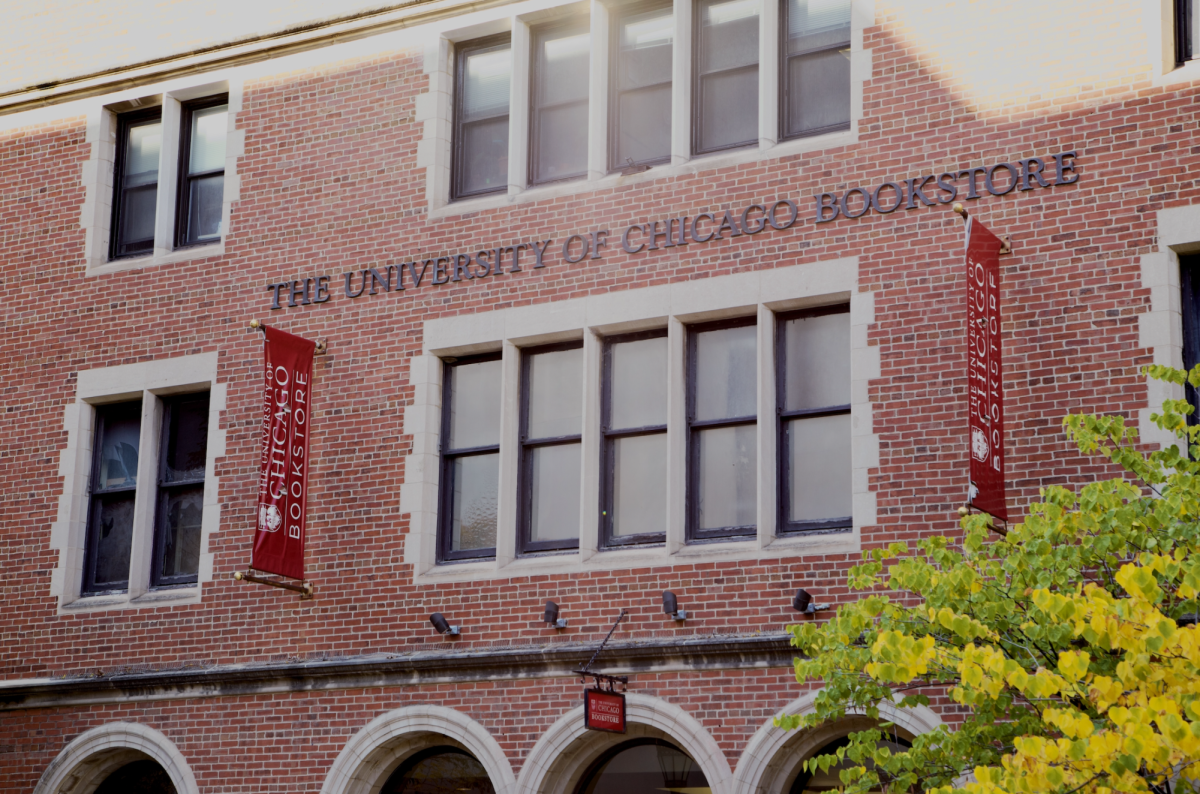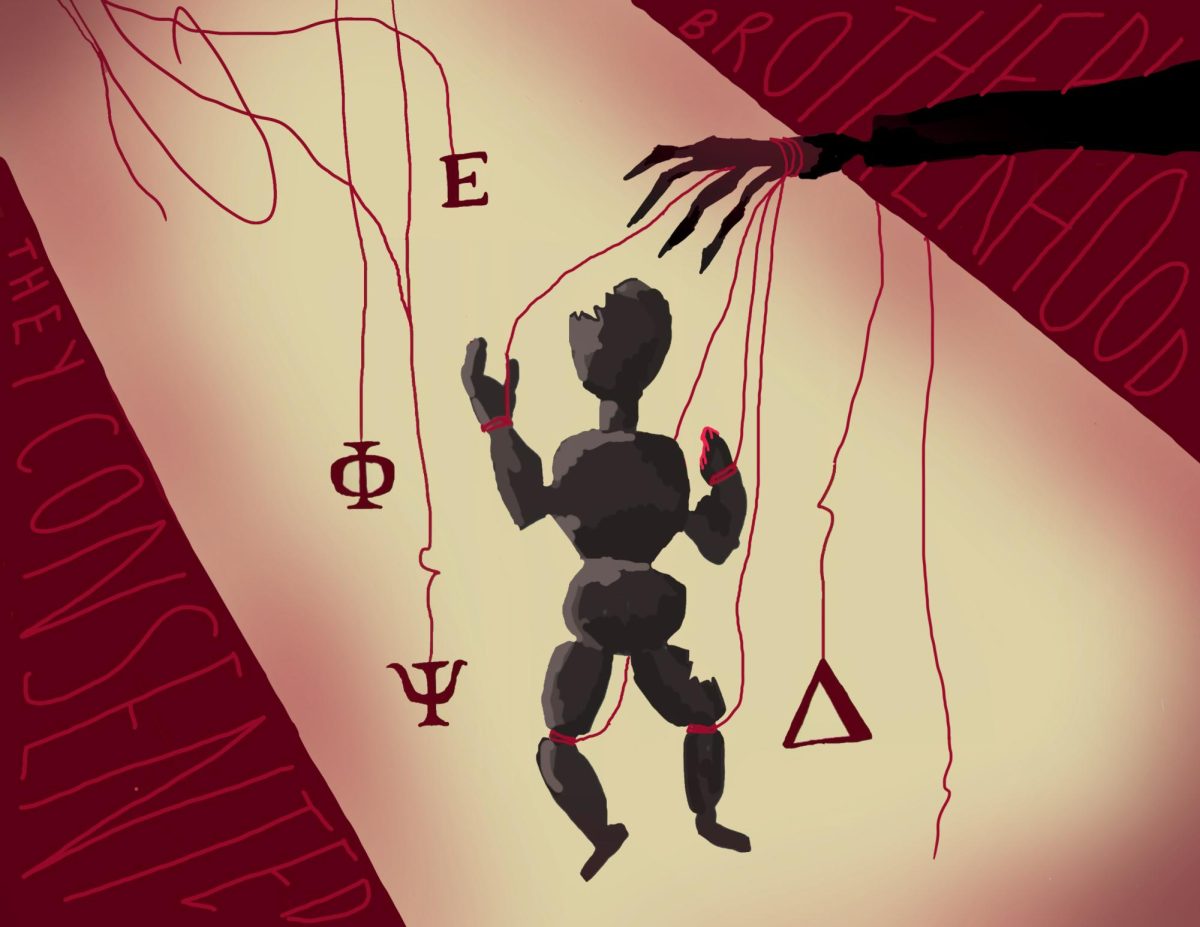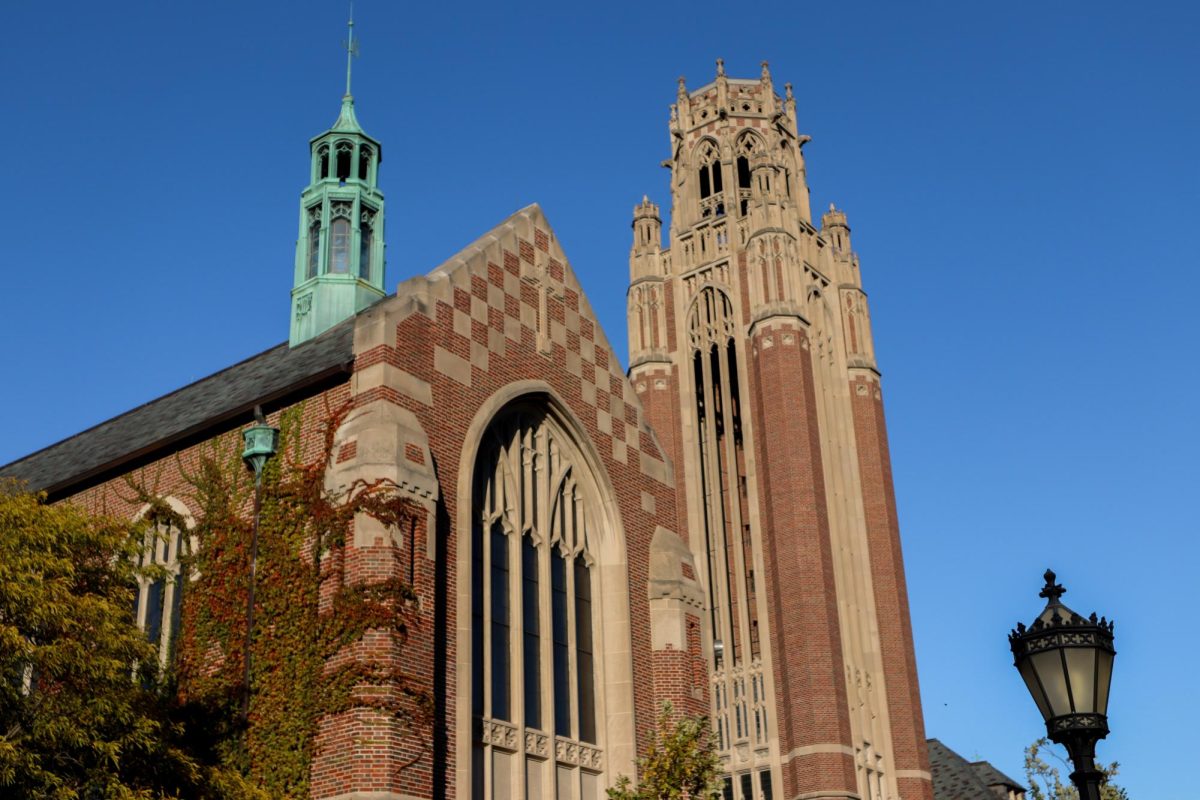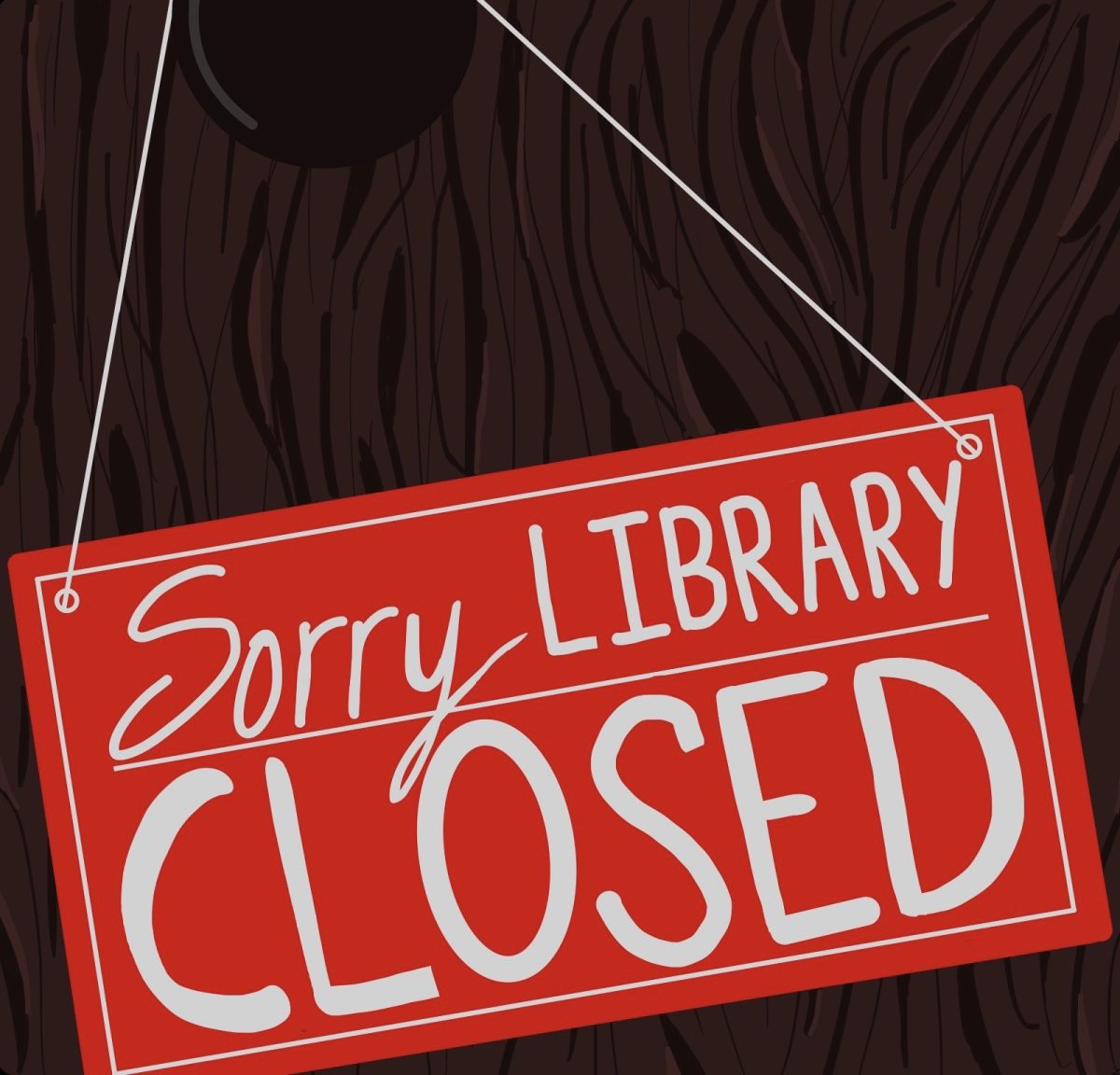As the Thrive Slate prepares to run unopposed in this year’s spring Student Government (SG) elections, this columnist has obtained screenshots of SG’s Slack channel that show that the incumbent Engage Slate—composed of fourth-years President Raven Rainey, Vice President for Administration Alex Levi, and Vice President for Student Affairs Myles Hudson—wasted thousands of dollars on gifts that were never distributed to the student body. Through my conversations with members of SG, it is clear that this error is just one of several instances of a complete ethical failure by Engage. These instances include obscuring details of its mismanagement of sexual assault victims’ sensitive, private data and, most recently, its attempts to derail the College Council’s exploratory committee on reforming Student Government as it advocated a restructuring of the executive slate.
On November 21, 2020, Engage tweeted a picture of the SG office in Reynolds Club completely filled with boxes and notebooks, captioned “[FIRST YEARS], get ready for your ‘survived first quarter at UChicago’ gift!! The way u [sic] take notes will forever be changed, courtesy of the @SeminaryCoop and SG.” The gift is again referenced in Engage’s autumn review email, which states that first-years will receive their notebooks “by the start of winter quarter.” These notebooks, one for every first-year, cost the Executive Committee approximately $5,000 in Student Life fees from its discretionary fund.
As any first-year could confirm, though, the notebooks were never delivered. According to messages from Student Government’s Slack channel, they are still piled up inside the SG office. In the messages from April 8, Undergraduate Liaison to the Board of Trustees Itzel Velazquez points out the obvious irony behind nearly $5,000 worth of “Welcome to UChicago” notebooks that will never be delivered. The worst part is that the notebooks can’t actually be reused, unless Thrive wants to hand out notebooks that—according to an SG representative—say “Welcome to UChicago from the Engage Slate.”
This mishap is merely the latest example of Engage’s incompetency. In March, Rainey, Levi, and Hudson quietly posted a statement to Engage’s official Twitter account, apologizing for mistakenly giving “certain individuals within Student Government” access to Sexual Assault Awareness and Prevention Committee data that contained sexual assault survivors’ sensitive, private information. They neglected to mention that, tucked away in the sterilized details of the specific by-law violation, those “certain individuals” numbered roughly 70 members of the Student Government assembly. Even worse, the data leak happened in November, when committees are sat at the fall assembly; the apology came four months later, in March.
When asked why College Council didn’t speak out about the $5,000 worth of notebooks, especially given Engage’s history of mistakes, two College Council representatives—on the condition of anonymity—told The Maroon that they did not want to ruin the already tenuous working relationship between slate and College Council. According to Transition Committee representatives, College Council overwhelmingly preferred to handle matters in-house, including concerns with Slate, to avoid tarnishing the work that College Council has done this year.
Despite this desire to keep disagreements behind closed doors, tensions between slate and the Student Government Transition Committee bubbled to the surface in a comment thread on UChicago’s Poll Party page between third-year representative and Transition Committee Chair Allen Abbott and Levi. In the thread, Levi accused Abbott of making “disingenuous” and “misleading” claims about the way he chaired the Transition Committee. The process had been rushed and done “without deliberation,” according to Levi. “Real transparency,” Levi wrote to Abbott, “looks like owning up to that.”
The scrap in Poll Party wasn’t the first time the executive slate has criticized Abbott over the work of the Transition Committee. It also arose on March 8 in an SG Executive Committee meeting at which, by virtue of being only for Executive Committee members, Abbott was not present. During a 10-minute discussion on the Transition Committee, Executive Slate attacked Abbott, with Rainey declaring that Abbott was not only “very stubborn” but that he had an “agenda” with “a looooooot [sic] of unchecked power.” Levi agreed, saying that the committee was “going really fast and not consulting with anybody.”
As Abbott and the Transition Committee explained in their recent letter to the editor, these claims and others that were made by Levi in recent Maroon coverage are entirely unsubstantiated. Levi, in fact, should know better than anyone: According to the committee’s letter, Levi and “dozens” of other SG members had access to the committee’s work for at least a month in advance of the official review. Levi personally, along with the other members of Engage, was contacted for feedback on several occasions through “email, Facebook, and Slack.” In total, “over 60 percent” of Student Government weighed in on the Committee’s work. Worse is the fact that the letter issued by the Transition Committee isn’t the first time Levi has had to be reminded of the truth. Shortly after the March 8 SG Executive Committee Meeting, Abbott drafted a memo to the Executive Committee, which was distributed in private. Much of its content, unfortunately, had to be repeated in the Transition Committee’s letter. Clearly, Levi, who calls for transparency in public, isn’t a fan of practicing it himself.
Why did the Transition Committee initially not go public with the executive slate’s attempt at undermining its work? Why did it wait until Levi made several inflammatory comments in public forums? When asked for a comment by The Maroon, Abbott replied, “Prior reform efforts in the ’90s and 2000s failed due to graduations, burnout, and exhaustion from political infighting. We didn’t want a once-in-a-decade chance at reform to fail because of the politicking or toxicity of the past several years.” In other words, the Transition Committee was very concerned with the idea that its months of work could be politicized. In a last-ditch effort to stop the Transition Committee, though, Engage has done precisely that: politicizing the committee’s work in public forums and interviews with the Maroon. Still, the Transition Committee retains hope. Committee member and second-year representative Summer Long told this columnist that “[Committee on Marginalized Student Affairs Co-Chair and second-year representative] Tyler [Okeke] and I are in frequent contact with them when we attend executive meetings. We have assigned individuals to reach out to every committee. They are welcome to continue to voice their concerns.”
Engage’s odd dysfunction isn’t restricted to College Council; by the way the administration treats the Executive Slate, it is clear that it recognizes Engage’s inability too. In Engage’s Twitter announcement of its presidential selection survey on December 16, it called the survey a “unique opportunity to add [student voices] to the presidential search.” A month later, its only Maroon publication echoed that sentiment, demanding selection criteria and telling students to “seize this historic opportunity to set the University of Chicago on the right path.” It touted its meeting with the faculty selection committee, which, according to Engage, “agreed that these criteria cannot go unconsidered.” Right before encouraging students to respond to its survey, Engage also mentioned that the selection committee “could not comment on the exact details of the presidential search” but that slate is “confident” that it will listen to student concerns.
As it would turn out, however, hidden in the minutes of the College Council meeting held the day after the letter was published, the selection committee had been holding out on Engage. The University had, in Levi and Hudson’s own words, likely already chosen the next president. Likewise, the goalposts of the presidential selection survey were shifted behind the scenes from providing meaningful input into the presidential search to “inform[ing] the president about students’ concerns.” Levi and Hudson noted that they needed 1,000 responses for their data to be seen by the faculty as “statistically significant” and thus meaningful. That night, five days before the survey was due and after more than a month of the survey being public, they only had 200 responses. Barring a water-walking miracle, it is safe to assume that Engage did not reach its goal and, just like that, one of the few initiatives that Engage made during its term ended in failure. Engage neglected to tell the undergraduate student body, though, that it believed a selection had already been made, meaning students filling out the survey in hope of contributing to the presidential search process were wasting their time. Had Engage admitted its survey was never going to contribute to the administration’s independent selection process, this wouldn’t be as much of an issue. But instead of setting the record straight, it chose to lie by omission in a weak attempt to save face.
It would appear that even Levi knows that his executive slate has been ineffective. In the comment section of the UChicago Poll Party Facebook page, one student commenter remarked that, over their four years at the University, “student government has…failed to push back against nearly any administrative action, and has not significantly impacted the lives of students.” Levi responded, but not to say that Engage had “significantly impacted the lives of students.” No, instead, he pointed to the work of last year’s executive slate, CARE. That’s like replying that, when your boss says you suck at your job, at least the last guy was pretty good.
But to be utterly inept is one thing. Why is Engage actively trying to sabotage the Transition Committee by claiming that it suffers from a lack of input, when all the evidence points to the contrary? To be clear, Levi, in his comments to the Maroon, does not advance any counterargument against the merits of the proposed IDEA Act; other than calling for more deliberation, at least according to the public image Levi presents to the Maroon, it would appear that he has no real problem with the content of the bill.
Most of the minutes of the March 8 Executive Committee meeting don’t exactly explain Engage’s rationale either. Beneath a veneer of personal attacks and disproven claims about the Transition Committee’s openness, there are exactly two vaguely substantive claims. Hudson makes the first, pointing out that “SG power at its core is kind of fake.” Expanding SG, he argues, just makes it seem more fake to the student body. The second part of his point, a vague gesture to the addition of “more positions,” is irrelevant. As the Campus Policy Research Institute found last year, people don’t pay enough attention to the composition of SG as it is to quantify any sort of additional “fakeness” produced by new SG positions. Before COVID-19, over 50 percent of the student body couldn’t name a single member of the executive slate, an even greater amount couldn’t name a single SG committee, and a whopping 40 percent didn’t even know that liaisons to the Board of Trustees existed. It seems likely that these numbers have significantly worsened during COVID and during the term of an executive slate that is apparently much less active than its predecessor. The worst-case scenario of adding more committees and positions, then, wouldn’t be that students will now consider SG to be “more fake.” Simply put, given the track record of SG literacy in the student population, most undergraduates wouldn’t even know that these positions exist.
Hudson’s overarching point that SG power is “fake” is broadly agreeable. But it makes one wonder why—if Hudson really believes what he just said—his slate is going through all the trouble of attacking the Transition Committee just weeks before a new slate is elected. If Hudson truly thinks that SG power is ultimately fake, then why does Engage clearly care so much about it? The poignancy of this realization is doubled when one recalls a quote from Rainey as seen in representative Abbott’s response document to the Executive Committee: “I’ve only promised to ensure a functioning Student Government until the end of the school year, then it’s not my problem.” Both quotes from Hudson and Rainey seem to portray the same degree of skepticism and disinterest in the institution of Student Government. What caused their sudden shift in the complete opposite direction, a shift so large that Levi felt it fitting to break Student Government norms and air his grievances to the student body in a popular UChicago Facebook group?
The second claim is made by President Rainey: “Admin expects there to be an exec slate—it’s what they work with.” But at this point, on March 8, Rainey should have already known better. After all, it had been just two weeks after the administration made the explicit choice not to work with the executive slate on the presidential selection.
The single most revealing remark in the Executive Committee’s minutes is the unattributed introductory notation that “things are ~*really happening*~.” Hidden inside the asterisks and tildes is a sheer panic, one that is evidently giving the members of the executive slate the feeling that, as Levi said, things are moving quickly. In this light, the observation made by Abbott in his document, that “the vast majority of [Levi and Rainey’s] contributions [to the Transition Committee] centered around advocating for a ‘three-person executive slate,’” makes much more sense: Engage is desperately trying to do whatever it can to avoid the embarrassment of being the “last” executive slate. Per the Transition Committee, it pushed aside multiple requests to participate in discussion over the committee’s work, likely because it didn’t think the committee would actually get to the point of legislation. Now that the IDEA Act has become very real, slate has no choice but to pull out all the cards, whether those be lies or outlandish claims that the Transition Committee is unrepresentative of Student Government. Engage wouldn’t truly be the “last” slate—election reforms, if passed, will be put in place for 2022—but it would, for whoever really cares, be known as the ineffective slate that catalyzed the most sweeping electoral changes to Student Government in decades.
In lieu of actually serving the student body, Engage has settled on staging a hopeless performance to save its own image. Levi, for one, plans to continue his performativity into graduate school, vowing, if elected as Graduate Liaison to the Board of Trustees, not to meet with the Board of Trustees until it agrees to disband itself. When Graduate Council rightfully called him out in its candidate meeting, he replied that “their skepticism is just internalized hatred leaving the body.” But what is even more troubling than playing pretend is the fact that Engage slate would have been more than happy to let the evidence of its numerous errors and malicious intent lie uncovered. This—so much more than its mistakes and lack of self-awareness—speaks volumes of the characters of President Raven Rainey, Vice President Alex Levi, and Vice President Myles Hudson. I hope that future slates, Student Government representatives, and employers will see the example that Engage set and shy away from such incompetence and dishonesty.
Matthew Pinna is a fourth-year in the College.








